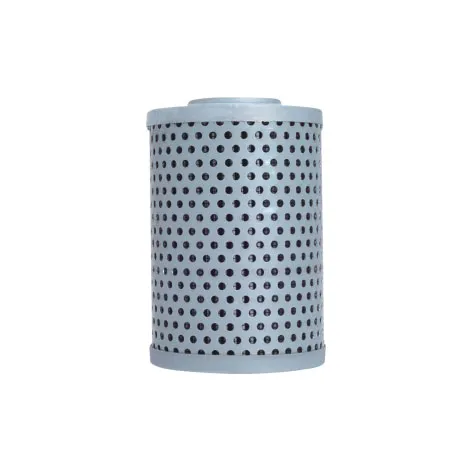Maximizing Hydraulic System Performance with the Right Hydraulic Filter
2024-08-13
In any hydraulic system, the performance and reliability of the equipment depend heavily on the cleanliness of the hydraulic fluid. Contaminants in the fluid can cause significant damage, leading to costly repairs and downtime. This is where hydraulic filters come into play. By selecting and maintaining the right hydraulic filter, operators can ensure optimal system performance and extend the lifespan of their equipment.

The Role of Hydraulic Filters in System Performance
Hydraulic systems rely on fluid to transmit power and perform various functions. However, this fluid is susceptible to contamination from external sources (such as dust and dirt) and internal sources (such as metal particles from wear and tear). These contaminants can obstruct fluid flow, cause components to malfunction, and reduce the overall efficiency of the system. Hydraulic filters act as a barrier, capturing these impurities and preventing them from circulating through the system.
Choosing the Right Hydraulic Filter
Selecting the right hydraulic filter is critical to maintaining system performance. Several factors should be considered when choosing a filter, including:
1. Filtration Efficiency: The filter’s ability to capture contaminants is measured by its filtration efficiency, which is determined by the filter’s micron rating. A lower micron rating indicates finer filtration, which is essential for protecting sensitive components in the system.
2. Flow Rate: The filter must be able to handle the flow rate of the hydraulic fluid without causing a pressure drop. It’s important to choose a filter that matches the system’s flow requirements to ensure efficient operation.
3. Dirt Holding Capacity: This refers to the amount of contaminants a filter can hold before it needs to be replaced. A filter with a higher dirt holding capacity will last longer and require less frequent replacement, reducing maintenance costs.
4. Compatibility: The filter material must be compatible with the hydraulic fluid used in the system. Using an incompatible filter can lead to degradation of the filter material and potential contamination of the fluid.
The Impact of Proper Filtration on System Longevity
Proper filtration is essential for extending the life of hydraulic components. Clean hydraulic fluid reduces the wear and tear on pumps, valves, and other critical parts, minimizing the risk of unexpected failures. By preventing contaminants from entering the system, hydraulic filters also help maintain the precision and accuracy of the equipment, ensuring consistent performance.
Maintaining Hydraulic Filters for Optimal Performance
To get the most out of your hydraulic filter, regular maintenance is key. This includes checking for signs of clogging, monitoring system pressure, and replacing the filter as needed. Some systems are equipped with pressure indicators or sensors that alert operators when a filter needs attention. Adhering to these maintenance practices ensures that the filter continues to perform effectively, protecting the hydraulic system from damage.
Conclusion
Hydraulic filters are a critical component in any hydraulic system, safeguarding the fluid from contaminants and ensuring the smooth operation of the equipment. By selecting the right filter and maintaining it properly, operators can maximize the performance and longevity of their hydraulic systems. Investing in quality filtration is a small price to pay for the protection it provides, making it an essential part of any hydraulic maintenance strategy.


